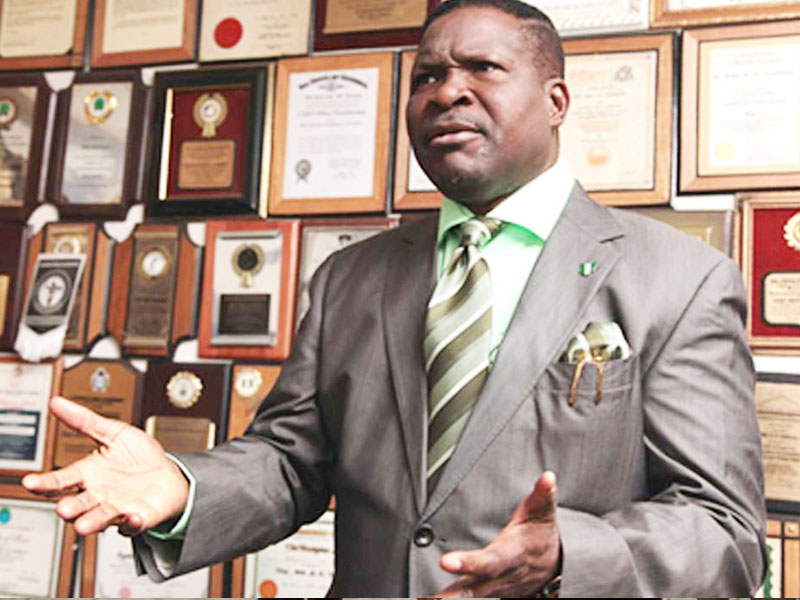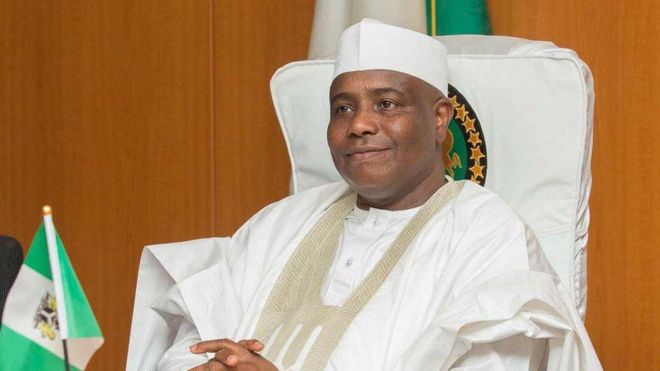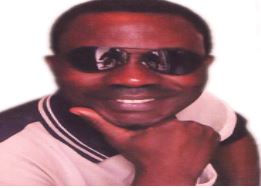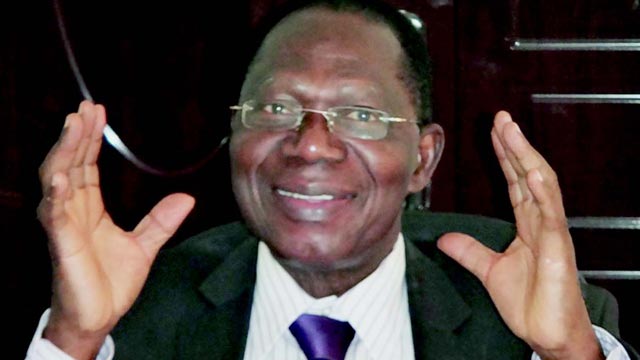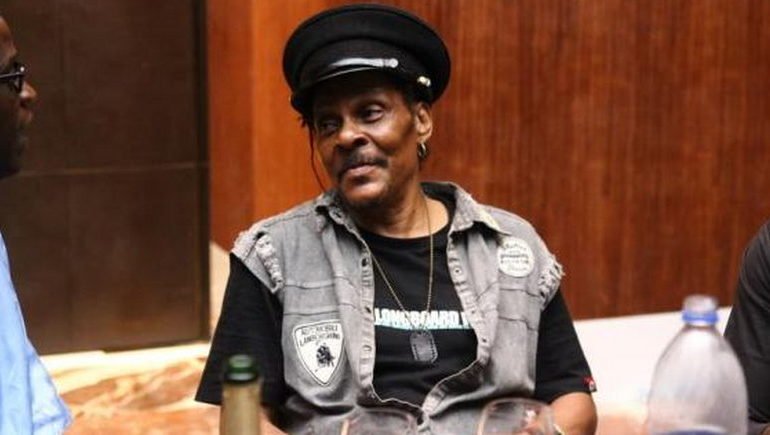– Prof. Godwin Sogolo
Introduction
Since the beginning of this series of presentations, organized by the Centre of Excellence in Migration and Global Studies, the Vice-Chancellor of the National Open University of Nigeria, Professor Abdallah Mba Adamu, has been trying to educate us on the correct understanding of terms such as “mallam” and “almajiri” which he defines as meaning a person in search of knowledge. The VC believes that it is a misconception to tie these concepts specifically to poverty or begging. By his definition, we – all of us in NOUN – are mallams or almajiris, translated as academic migrants, insofar as we are not indigenes of Abuja.
I had always wanted to tell the VC to speak for himself, but that would be impolite to the Head of our great Institution. The good thing is that the VC’s clarification has prompted me into a reflection on my own background and career history. And, from that introspection, he may well be right that we are all academic migrants. Anyway, what’s in a name, after all?
Generally defined, migration is “the movement of people from one place to another with the intention of settling, temporarily or permanently”. It is a normal factor in the evolution of human society. Migration contributes to social, technological and human capital development, and promotes mutual understanding across cultures. It is, indeed, a global phenomenon and a social imperative embraced by all human societies. More important, the forces of migration have led to increasing globalization in the modern world, dissolving national identities and changing demographic profiles.
What I want to do in this discussion is to share with you my experience in migration in such narratives as my memory can go. My story is special to the extent that I started migration, even before birth and, until now that I am speaking with you, I have been migrating without stop, and with no intention of stopping! The story is about my experience as a voluntary migrant from youth, through adolescent age to adulthood; it covers my sojourn in different parts of the country and then movement to foreign lands. As much as possible, I have tried to recount some of the memorable events at each of the locations of my experience. The story concludes by highlighting some of the major rewards and benefits of my experience, in contrast to the agonies and miseries of forced migration, in the past and in modern times. The discussion concludes by commending NOUN and the Centre of Excellence in Migration and Global Studies, CEMGS, for the academic focus on the complex issue of migration.
Clarifications and key Distinctions
I want to make two conceptual clarifications that I consider to be relevant to this discussion. The first one, is the distinction between a migrant and an immigrant, the former being temporary while the latter connotes permanent residency. And the second point is the difference between voluntary migration, meaning the movement undertaken by an individual on his own free will, and involuntary or forced migration, that which is forced on an individual or group by the prevailing circumstances. I should add that none of these distinctions is clear-cut.
Born in Migration
In Nigeria, the common practice, when asked to identify yourself, is to start with your name, followed by your place of origin. You already know my name; I am from Emevor in Isoko North Local Government Area of Delta State. The Isoko are a minority among the minority ethnic nationalities of the Niger Delta Region. In the 1940s, my parents migrated from Emevor to Ekoabetu, a remote village close to Benin City, in Ovia North East Local Government Area of Edo State. They were farmers who went there, literally speaking, in search of greener pastures. So, they were economic migrants. Well, whether they were migrants or immigrants depends on the conceptual definition just made. Suffice it to say that I was born there, in migration away from my hometown of Emevor. As to the exact date and circumstances of my birth, these were facts recorded only in the memories of my parents and close relatives, and they were never written anywhere. Anyone who wants to know how I came about the date of birth in my official records, should ask former President Olusegun Obasanjo and others how they got theirs.
Like the Igbo, the Isoko are a migrant people, both in character and culture, and they see migration as a normal way of life. Of my three elder brothers, two sojourned to Oghareki, near Sapele and the other, brother Jeremiah, migrated to Warri, all within Delta State. I was too young to remember much of what happened in my birthplace of Ekoabetu, except that in the early 1950s, I, too, left my parents and migrated to join brother Jeremiah in Warri.
Seeking Education in Migration
The Warri phase of my experience as an internal migrant, within the Niger Delta, constituted the formative years of my life. Brother Jeremiah was married and I shared with the couple the one-room apartment that they rented. Could there have been a more humble beginning?
Given our low-income status, going to school would been almost impossible. However, my brother took advantage of Obafemi Awolowo’s 1955 scheme of free Universal Primary Education in Western Region, of which we were a part at the time. That was how I was able to go to Sido Preparation Primary School in Warri.
My first day at school was a memorable event. Brother Jeremiah had walked me to school and left me in the hands of Teacher Cecilia Agbatutu, an Urhobo lady, who wanted to know all my names: first-name, middle-name and surname, which I presented to her, as written for me on a piece of paper by my brother. She read through the paper and murmured something to the effect that the names did not sound nice and were too cumbersome to write or pronounce. There and then, Madam Agbatutu took a decision: she left out my first and middle (vernacular) names, as given to me by my parents, and made a pronouncement: “From today on, your name shall be “Godwin Sogolo”. She asked, if I liked it and I nodded in the affirmative, even when protesting from within. The atmosphere was simply too intimidating for a village boy like me to raise an open objection. And, surprisingly, when I reported the matter to brother Jeremiah, he saw nothing wrong with it!
The only other major event that I can recall, during my primary school days, was my historic journey to Ibadan in 1956 or 1957, as one of the 17,000 school children who went to the city stadium to welcome Queen Elizabeth II to Nigeria.
Dangers of Growing up in Warri Compared to Emevor and Ekoabetu, Warri was already a cosmopolitan city, even in the 1950s and 1960s.Therefore, the social ills of urban life were rampart and posed grave dangers to vulnerable youths growing up in the town. Of greater danger to the youths was the pervasive lifestyles in Warri, mainly by expatriate oil workers and other young men who were notorious in night-crawling, drunkenness and patronage of commercial sex workers. The luck I had was that brother Jeremiah was a strong disciplinarian who gave me little or no time to go out and mix freely with play mates, and so saved me from the misfortune of joining the numerous groups of mischief-makers, called “Burma boys” or “jagudas”, the equivalents of today’s “area boys” in Lagos.
From Sido School, I went to Urhobo College, Effurun, a distance – away from where we lived – of some 10 kilometres in the outskirts of Warri. Due to financial constraints, I was a day student in my first two years at Urhobo College, meaning that I had to trek to and from school, covering some 20 kilometres every day. At school, I was, again, lucky to be under the watch of another disciplinarian, Principal M. G Ejaife, who gave good conduct equal rating as academic performance. Although Warri had all the trappings of modernity, the township, as it was called, and its environs, did not, at the time, have a single institution of higher learning – no college of education, polytechnic or university. Consequently, most secondary school leavers knew very little or nothing about higher education such that their career ambitions were limited to either working in one of the oil companies or joining any of the arms of the civil service.
From Warri to Port-Harcourt
When I left Urhobo College in 1963, I migrated, yet again, to Port Harcourt, as a staff of Shell Petroleum Development Company. Port-Harcourt, then, was under the defunct Eastern Region. My stay in Port-Harcourt was eventful, but there was one particular experience that stood out. I was a junior staff and worked with other young men and women, as Sedimentological Assistants, in the Geological Laboratory of the Company. It was the common practice, indeed, routine, that at lunch time on every working day, we – boys and girls – went together for lunch at the company canteen. That happened regularly for much of the year, until the summer months when the universities were on break and students came for vacation jobs in the Laboratory and other Departments. Having grown up in Warri where secondary schools were the highest institutions, I had little or no knowledge about universities. Now, here were the young undergraduates commanding the attention of all. Once they were around, the girls would abandon us and join them at lunch time – and would even behave as if they did not know us. Comfort Ajayi, one of the girls I thought fancied me, would, to my discomfort, join them! But as soon as the undergraduates returned to their various universities, the girls would come back to us, as if nothing had happened. To cut a long story short, that was the main factor that motivated me to seek admission to the university.
From Port-Harcourt to Ile-Ife
Just before the outbreak of the Civil War in 1967, the Biafran Leader, Chukwuemeka Odumegwu Ojukwu, had ordered all non-Easterners to return to wherever they came from. I was, again, on the move. Fortunately, however, what the girls did to me and other young men in the Geological Laboratory, had yielded fruits. I had written entrance examinations and secured admission to two Universities: the University of Nigeria, Nsukka, and the University of Ife (now Obafemi Awolowo University). When I informed brother Jeremiah about the two options, and told him that I preferred going to Nsukka, he shouted in anger and warned me seriously not to dare! Why? Well, I have many Igbo friends, and I would rather not quote my brother. But, he was wrong. Even then, I still obeyed him and chose the University of Ife.
My undergraduate days at the University of Ife were, as usual with students, exciting. I was admitted to read Accounting, under the discipline of Economics, in the Faculty of the Social Sciences where mathematics was one of the compulsory courses. However, in the examinations at the end of the First Session, I performed very poorly in mathematics. And, during the registration exercise for the Second Session, I had a very memorable encounter with the Dean of the Faculty of the Social Sciences, the legendary Economist, Professor Sam Aluko. We were many students on the queue waiting to register, and when it was my turn, Professor Aluko informed me that I had failed mathematics badly and, therefore, could not specialize in Accounting, but that I had done brilliantly in Philosophy, which was in the Faculty of Arts. He said he had discussed with the Head of the Department of Philosophy, Professor J. O. Sodipo, and that they had agreed to transfer me to that discipline.
First, I had very little or no knowledge about Philosophy, even though I had performed so well in the subject and second, I had no idea what to do with a degree in Philosophy. But, I made the mistake of openly insisting that I still wanted to do Accounting to which the Professor, who was known for his bluntness, yelled and to the hearing of the crowd of students on the queue; “Mr. Sogolo”, he said, “you have failed mathematics woefully and you are insisting on doing Accounting? What is your reason, to steal money?” I could hear laughter from the crowd of students on the queue. I, instantly, accepted the proposed transfer to Philosophy and came out of Professor Aluko’s office, feeling humiliated and ashamed of myself.
The circumstances of my birth, my Port Harcourt experience that took me to the university and the encounter with Professor Aluko, called to mind the philosophical issue of freedom and determinism. As human beings, are we truly responsible for our actions? In other words, do we choose from among alternative courses of actions and work towards planned goals? Or are events thrust upon us by fate such that we merely float along helplessly? Let us leave these questions for philosophers to grapple with.
I cannot recollect nursing any particular career aspiration before I went to the university as an undergraduate. I chose to read Accounting but, with a failure in mathematics and the humiliating encounter with Professor Aluko, the prospects of my becoming an Accountant fell apart. However, God in His mysterious ways, intervened and it was the same Professor Aluko who advised me to read Philosophy, in which I made a distinction. And, it is Philosophy that has, not only taken me near and far, but also given me a very good life! It was at Ife that I met my friend, Professor Femi Otubanjo. He graduated a year ahead of me and was appointed Graduate Assistant. Graduate Assistants, in those days, were role models to students. They were bright and dashing young men and women, with cars on campus. Femi himself had a Volkswagen Beetle with open roof and many of us looked up to being like him. But, you must make a First Class or, at least, a Second Class (Upper Division) to be appointed Graduate Assistant. Making that grade became the highest inspiration for many of us in the final year.
In 1972, I graduated, winning prizes as the best student, not only in Philosophy but also in the entire Faculty of Arts. On Convocation Day, I experienced yet another spectacular event in my life. As a prize winner, I was called upon to shake hands with the great Awo! And I did so, not once but twice! Those moments will forever remain indelible in my memory. And, after Convocation, I did not forget to visit Professor Aluko to thank him for his good mentoring.
Migrating to the UK
My performance at Ife was good enough for appointment as a Graduate Assistant and I was so appointed. However, I could not take up the offer for reasons complex enough to constitute another long story. My results at Ife were also good enough to secure admission for me to do a Ph. D at the Cardiff University of Wales in the UK. This was yet another phase of my adventure in migration.
I was lucky to secure full overseas scholarship from the defunct Mid-West State Government and in 1973, I proceeded to Cardiff. My sojourn at Cardiff gave me the opportunity of getting closer and more intimate with Femi Otubanjo, with whom I shared the same supervisor, Vernon Pratt – from whom we imbibed the work ethics of serious and meticulous devotion to duty. In fact, Femi and I defended our Ph. D theses the same day and were examined by the same Panel of Examiners, with Professor Dorothy Emmet of Cambridge University, as External Examiner.
While I returned to Nigeria in 1976, soon after securing the Ph. D, Femi who could afford the luxury of another post-graduate degree, proceeded to the London School of Economics (LSE) for a Masters Degree in International Relations. Lack of funds was not the only reason I returned to Nigeria. Indeed, I was so excited with my change of status, from “Mr.” to “Dr.”, that I wanted my people in Emevor, Ekoabetu, Warri, Port Harcourt (Comfort, if possible) and Ile-Ife, to know about my new status. One point of observation about migration is that successful migrants always feel the inclination to show-off, back home, that they have made it. I was very much driven by that urge.
Career at the University of Ibadan
I arrived Nigeria in 1976 to find that almost every teacher at the University of Ibadan, where I had been offered a job, as Lecturer II, had a Ph.D. Yet, that did not douse my excitement. On the contrary, that feeling of accomplishment almost became an obsession that threatened my career progression, as my first two to three years at Ibadan, were intellectually unproductive, in terms of research and publications.
I was, however, able to overcome these initial challenges through the prompting of Femi, who had also joined the University’s Department of Political Science, after finishing from LSE. In 1978, Femi showed me a personal plan of research topics that he was working on as well as projected journal publications, and he advised me to do the same. I did and the result was a dramatic lift in my academic output. I should add that the same Femi advised me a few years ago, to ensure that I put some funds aside when I was still actively engaged, in preparation for very old age when earnings would ebb to zero. I also took this advice.
Other Phases of my Migration Experience
My 27 years of research and teaching at the University of Ibadan were punctuated by other migration experiences, within and outside Nigeria, mainly on sabbatical leave or leave of absence from Ibadan:
A Taste of Lagos
Between 1986–1991, I ventured into the world of journalism when I served, on part-time basis, as a member of the Editorial Board of the Guardian Newspapers. In 1990, I became the Managing Editor of the African Guardian Magazine, on leave of absence from Ibadan. That position required my stay in Lagos, and I moved to Lagos where I stayed for almost a year. My experience in Lagos confirmed the belief that anybody able to live in that complex city, can live anywhere in the world.
To UNISA in South-Africa
At intervals, between 1995–1996, I visited the Department of Philosophy of the University of South Africa (UNISA), the first Open and Distance Learning (ODL) University in Africa and one of the oldest in the world. I was invited to set up the African Philosophy Unit of the Department of Philosophy, which I did. I also wrote the course materials being currently used for the B.A Philosophy Degree Programme. In appreciation of my service, the University organized a series of Colloquia in my honour. In addition, an offer of appointment was made to me, which I was required to take up whenever it was convenient for me. However, one of the very few black UNISA staff, who knew about the offer of appointment, publicly attacked me at a seminar, saying that Nigeria needed me far more than South Africa and that I should stay in my country and not think of coming to South Africa to take up a job that rightly belonged to his people.
Migrating to the USA
My visit to the United States of America in 1996, on sabbatical leave from Ibadan, was a remarkable experience. I was employed as a Visiting Professor to the Institute for Global Cultural Studies of the State University of New York, at Binghamton. The Institute was headed by the renowned Professor of Political Science, Ali Mazrui, and I taught various courses, both in the Institute and in the Department of Africana Studies, headed by another renowned scholar, Professor Isidore Okpewho. On my first day at work in the Institute, I was given an office with a table, desktop, printer and reams of paper. There was an Institute Secretary but she was not there to serve lecturers who were expected to do their own secretarial work, including the production of documents – very much unlike what I was used to at Ibadan. With almost a zero background in ICT, this was a huge challenge. But, somehow, I survived it. As for teaching, I must confess that my heavy accent was a major handicap, as I had to put in extra effort in pronunciation to be understood by the students. One more thing; students in the US were more probing and more daring in their interrogation of the subject matter, compared to Nigerian students. For the first time in my teaching career, I was shown a copy of students’ assessment of my performance as a teacher. Their rating was higher than I expected.
The University of Binghamton is located some kilometres away from Binghamton City where most lecturers and students live. But, there are University buses that convey both staff and students to and from the University. My experience was that on each working day, I would board the bus and, very often, to be greeted by my students, “Hi Godwin” to which I would reply “Hi Kevin”, “Hi Claire”, and that was all. It was the same with the staff of the Institute and Departments. Such was the degree of indifference; no staff or student cared about where or how I lived, as a visitor.
Back to the UK
From the US, I returned to my Alma Mater, the Cardiff University of Wales, in the UK, where I was employed as a Visiting Professor of Philosophy. As in Binghamton, the office allocated to me in Cardiff had all the provisions and ICT gadgets. Beyond that, I was on my own. Again, I managed to survive. Cardiff students were actively interactive and would take the lecturer to task on critical issues. What it means is that the teacher really needs to be prepared for drilling by students, unlike our students here in Nigeria who would swallow almost everything hook, line and sinker.
Something else unique about my Cardiff experience was that the University provided me with a guest accommodation for the period of my stay. Among my neighbours in this modest and sparsely furnished guest house was the Vice-Chancellor of the University, very much unlike Vice-Chancellors of our conventional universities in Nigeria who live in luxurious mansions with scores of staff at their beck and call. In the morning, the Cardiff Vice-Chancellor would say “Hi Godwin” and off he went, riding a bicycle to his office, Incredible!
The Vice-Chancellor’s simplicity is symptomatic of the lifestyle of academics in Europe and North America. We were, incrementally socialized into this lifestyle. As post-graduate students in Cardiff, we had to work as porters in train stations or dish washers in restaurants, to supplement incomes from scholarships, student loans and grants. In Nigeria, such jobs are usually considered by students as menial and unbefitting of their status.
Peace Studies in Abuja
The last location of my adventure in migration was Abuja where I was engaged as Director of Research and Policy Analysis of the Institute for Peace and Conflict Resolution, under the Presidency. The uniqueness of this experience was that it opened my eyes to the realities of practical life, both in the public and private sector, as against the theoretical perceptions from inside the academic walls of a university. Also, the advantage of being in Abuja at the time was that it offered me the vantage position of seeing all the aspects of life in Nigeria. It was from the Peace Institute that I came to NOUN, in continuation of my migration experience.
Cumulative Experience and Lessons
One of the moral lessons I have learnt from my migration experience, and exposure to Philosophy, is that character matters. This has been a guiding principle all my life, the basic element of which is the Kantian imperative that you treat others as you would want to be treated, meaning that human attitude is reciprocal. For example, people do not, normally, attack you unless you pose a danger to them or to their interests; if you are decent and nice to people, they reciprocate likewise, and if you are nasty to them, they tend to respond in the same manner. This is true of humanity in general, irrespective of race, nationality, colour or creed.
I have no doubt that my interactions with individuals and cultures, other than those of Isoko, have enriched my own understanding of myself, others and humanity in general. Exposure to other social systems, values and beliefs, teaches us the diversity of mankind. More important, contact with others shows that there are always alternatives which ought to be accommodated, respected and tolerated. Very often, some of the personalities we meet become our role models. Indeed, the more we learn about heroes and men of great achievements, the more humble we become.
On external migration, I believe that the years I spent in the UK, South Africa and the USA, helped in molding my attitude to and perceptions of a lot of issues. My attitude, for instance, to wealth accumulation and material possession has been influenced by my interactions with great personalities such as Bishop Desmond Tutu of South Africa, Professors Sam Aluko, Ali Mazrui, Michael Durrant and Robin Attfield. These men have utter contempt for opulence and excessive desire for wealth. Not only do they believe in these values, their lifestyles reflect every bit of them, such that whoever interacts with them is bound to develop the same attitudes. That is how my migration experience has helped in shaping my attitude to life.
Some Negatives of my Experience
In spite of the benefits of my adventure in migration, there are negatives worth emphasizing. Every community has its own culture, beliefs, values, customs, etc., making up the people’s worldview, the totality of which is encapsulated in their language. The Isoko Community is no exception. Unfortunately, having left home in my formative years, I lack proficiency in the Isoko language. It is true that I understand and can speak some Isoko, but it is not sufficient for use in an elaborate conversation or discourse such this one. An Emevor elder scolded me the other day, saying that my lapses in the Isoko language had serious implications for the survival of our culture. I, politely, declined to contest his query.
The other negative, indeed, an extrapolation from the same language deficiency, is my total failure in linguistic acculturation, by which I mean my inability to master the language of any of my host communities, other than English. For instance, I was born in Edo land and lived there for some years before migrating. Yet, I lack proficiency in the Edo language. I worked in Port Harcourt for years but unable to speak any of the indigenous languages there; nor can I speak a word of Yoruba, even after living in that part of the country for over thirty years.
Yet, my wife, a British-American, who spent far less number of years in Yorubaland and children with less experience, are able to speak some Yoruba, no matter how little. While I hold myself responsible for these lapses, globalization might also have been a contributing factor, as the English language has increasingly become the universal vehicle of communication. In whatever variations, all the places I visited in my many years of migration, spoke the English language.
The same language deficiency might have been the reason why, after such a long stay abroad and in the university system, my heavy Isoko accent remains largely unaffected, unlike many of my colleagues at Ibadan who returned with the “Queen’s original” or Americanized English.
Migration Not Always a Jolly Ride
Migration, whether voluntary or forced, is a fact of social life – in the past and in modern times, nationally and internationally. I have had the good fortune of experiencing voluntary migration all my life and that, itself, is a blessing. It was my choice, for the most part, when and where to migrate. And, pleasant circumstances determined, for me, the trajectory of my migration story. I was fortunate to enjoy hospitality from the host communities of most of the places I visited. Indeed, there would have been no problem, if everybody’s story were like mine. But, as history has shown, migration is not always a jolly ride.
It would be totally wrong – indeed, delusional– to paint a rosy picture of my migration, whether within Nigeria or abroad. Hostility, hatred, discrimination and resentment are features commonly experienced, especially in the United States of America, UK and South Africa. I could not have been insulated from these social vices in the years that I moved from one culture to another. Recent reports of xenophobic attacks on Nigerians in South Africa show the dangers faced by migrants and immigrants abroad.
A large number of migrants suffer the misfortune of forced or involuntary migration, which is an undesirable, inevitable and uncomfortable movement away from their comfort zones. Globally, wars, famine and natural disasters have been the recurrent causes of migration, on a large scale. They come with harrowing experiences, indeterminate journeys, hostile receptions, sharp reversals of fortunes, and even deaths.
The story of the movement of the Jews from Egypt, after 400 years in slavery, depicts, the ordeals of forced migration. Pursued by Pharaoh and his army, miraculously saved by the parting of the Red Sea, the Jews wandered for forty years in the desert, battered, along the way, by pestilence, poisonous snakes, thirst, hunger, violent attacks by hostile communities and deaths. Much later, the same Jews, fleeing Hitler’s pogrom, were luckier; yet, the consequences of their forced migration still persist in the world, today – 75 years after the end of the Second World War – in the form of an intractable Middle East Crisis.
Thus, to date, mass migration remains a common feature of world history; and it has continued unabated in the contemporary international system. The war in Syria unleashed a massive flow of migrants into the more stable nations of the Western world and forced them to pay attention to this relentless human tragedy.
Back home in Nigeria, the Boko Haram insurgents have caused painful dislocations in the North East and forced vulnerable families and communities out of their homes into refugee camps of Internally Displaced Persons (IDPs), with untold hardship and sufferings. These new trends in migration, both internal and external, demand academic focus which, I believe, is the reason for the establishment of CEMGS. It is my hope that the Centre will help to provide theoretical and practical insights into this great force of history.
Conclusion
My experience in migration has been an enriching one: from Emevor in my mother’s womb to Ekoabetu; from Ekoabetu to Warri, then Port Harcourt, Ile-Ife, Cardiff, Ibadan, Lagos, Binghamton and finally to Abuja, first at the Institute for Peace and Conflict Resolution and then at the National Open University of Nigeria.
In traversing these lands and cultures, I have interacted with a diversity of individuals, various traditions, customs and different ways of doing things. Exposure to diversity, not only humanizes, it also humbles the mind. That may be why I try as much as possible to avoid the arrogance of claiming superiority over other colleagues who are less exposed, and why I believe firmly that our indigenous systems, although different, are not qualitatively inferior to foreign ones. Developing such an attitude is one of the benefits derivable from exposure to diversity.
I should, finally, add that the greatest blessing of my migration experience is my precious multi-national family of a husband of Nigerian nationality; wife of English-American nationality; two children of Nigerian-English-American nationalities; two grandchildren of Nigerian-English-American-Australian-Singaporean nationalities, and still counting. How wonderful! `
In spite, however, of the huge benefits of my kind of migration experience, the comfort zone of every human being is his or her home community. That is where he feels most secured, most protected and most loved. No matter the amount of welcome we receive in a foreign land, it never marches the filial cordiality enjoyed at home. Hence the saying that “East or West, home is the best”.
Godwin Sogolo, FNAL, fspsp, Emeritus Professor of Philosophy, National Open University of Nigeria, Abuja. Distinguished Professorial Discourse on Migration and Globalization, Centre of Excellence in Migration and Global Studies (CEMGS), August 2020, Abuja.

